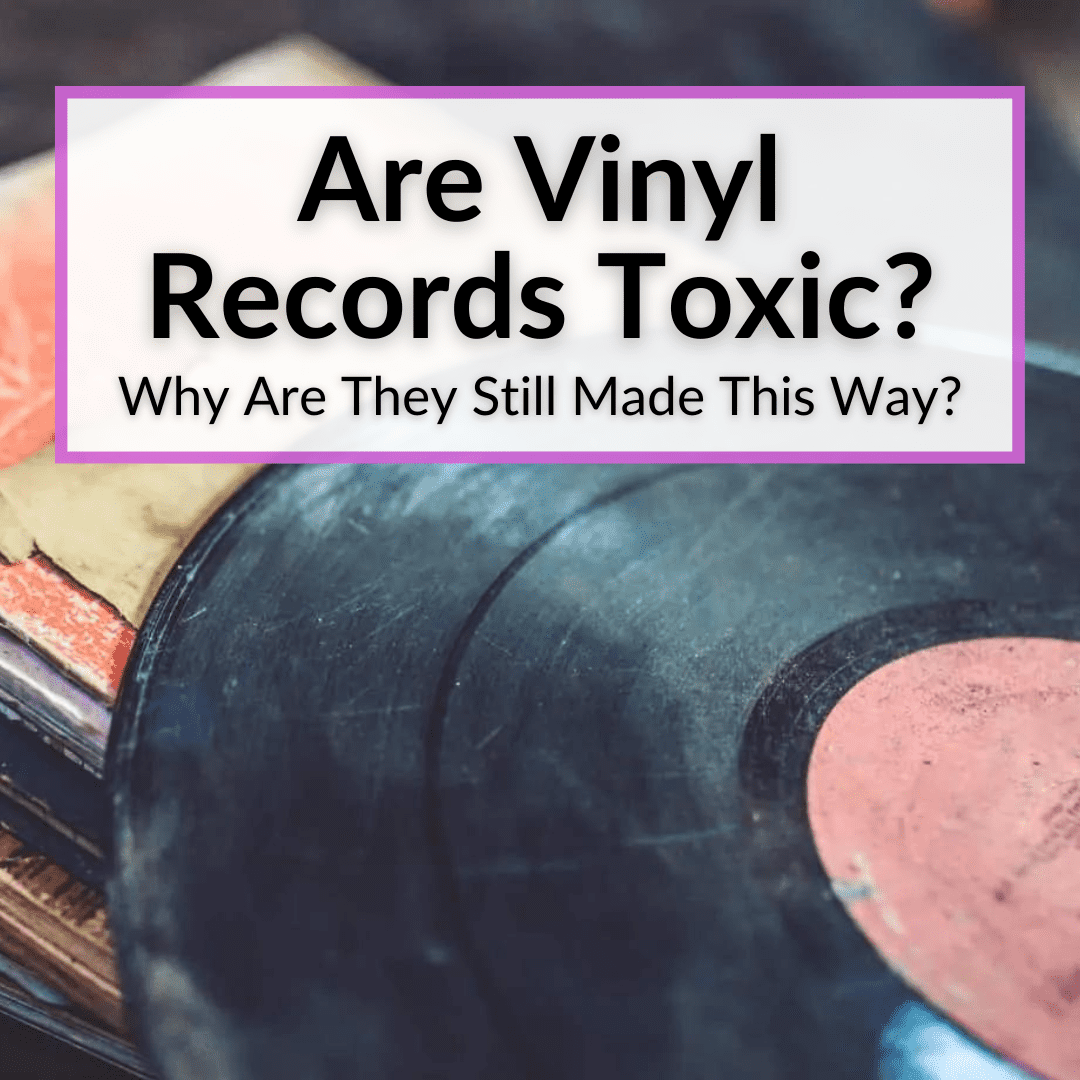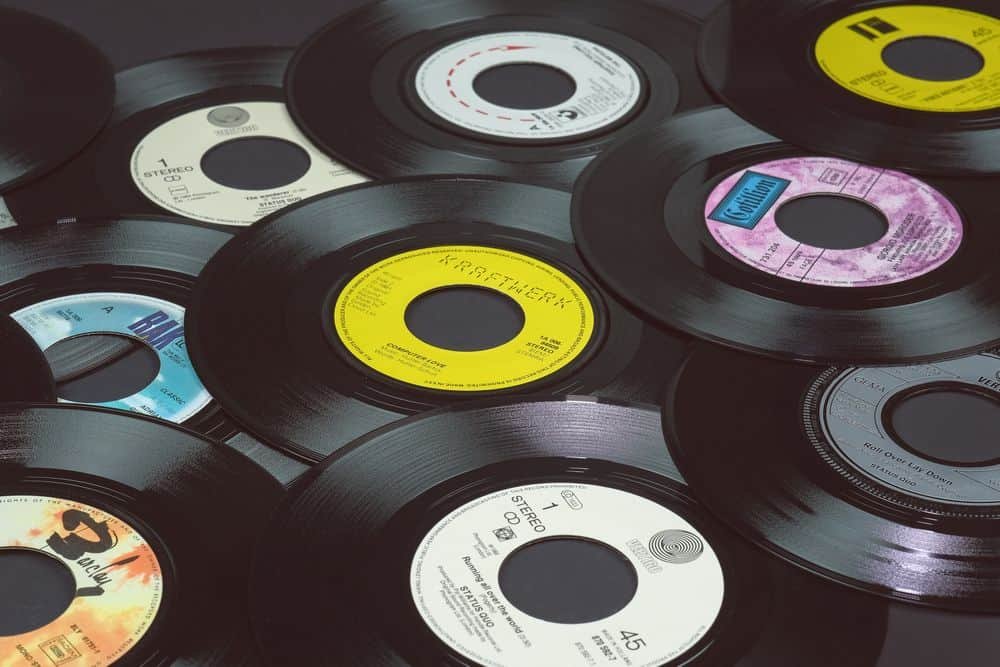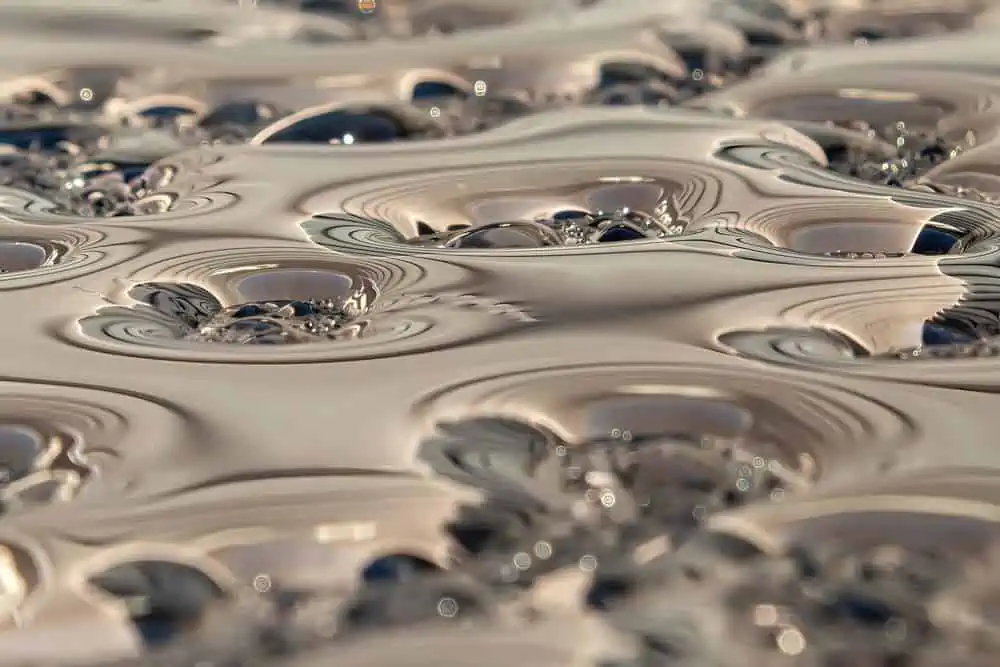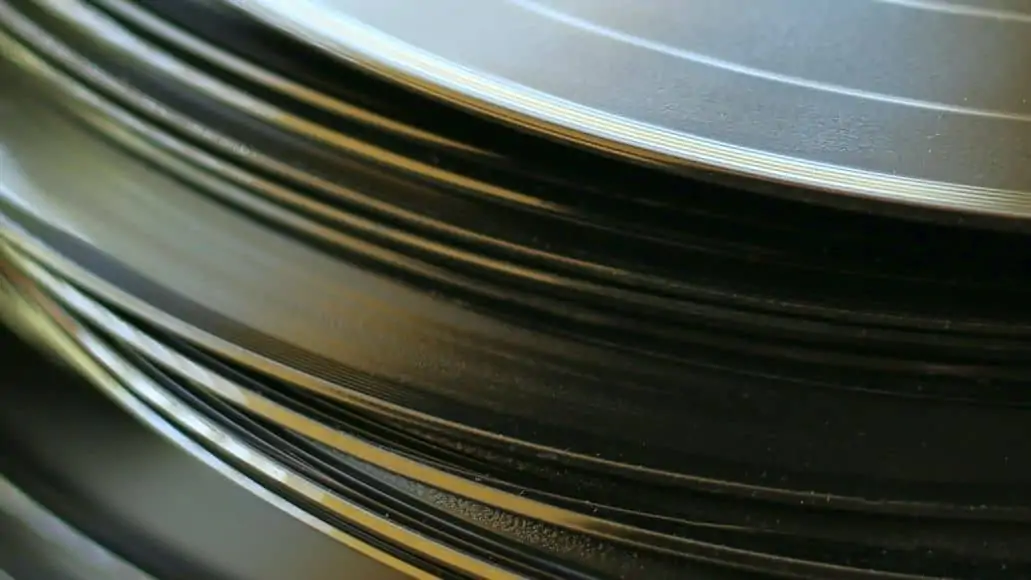
I know I am.
And in many cases, the thing that are bad are not that bad. Like eggs. Or cheese.
Is that how it is with vinyl records?
Is it just overblown panic, or are vinyl records toxic for real?
If you’re worried about having them in your home, don’t be. They won’t cause you any significant harm from simply being near them or playing them.
But it is a different story when you dispose of them. Or if you are a worker in a factory that makes them.
Keep reading to learn just how toxic vinyl records are, why they are so toxic, and if less toxic alternatives exist.
Are Vinyl Records Toxic?
Yes, vinyl records are toxic. They are made from the most dangerous plastic on the planet: PVC. The production, use, and disposal of vinyl records release harmful toxins that put human health and the environment at risk.
That sounds scary, but the risk from playing a record at home is minimal. Those most at risk are the workers making the records. And the environment, when we dispose of the records.
Chemical additives are used in vinyl record production to increase performance. They are used to maintain rigidity, thickness, and fluidity. Additives also prevent the PVC from eroding.
Despite health and safety hazards, PVC vinyl records are still actively manufactured and sold. This is mainly due to the sound quality, availability of materials, and high demand in the consumer market. It also keeps the cost of making records down a bit, over safer alternative materials.
Why Are Vinyl Records Toxic?
Vinyl records are made from polyvinyl chloride, commonly referred to as PVC. PVC is partially derived from fossil fuels and contains chemical additives that are dangerous to humans.
The highest exposure risk is created during the manufacturing process. However, vinyl records also give off small amounts of toxic gases when played. These toxins are released into your home and may pose a risk to your and your family.
Vinyl Chloride
Vinyl chloride is the primary component of PVC. It is extremely dangerous when inhaled. Vinyl chloride is considered carcinogen. Prolonged exposure to vinyl chloride causes lymphoma, leukemia, and brain, liver, and lung cancers.
Ethylene Dichloride
Ethylene dichloride is a liquid used to make vinyl chloride. OSHA (Occupational Safety and Health Administration) considers it an occupational carcinogen.
The health hazards posed by ethylene dichloride vary from headaches, fatigue, and confusion to respiratory failure and heart disease.
Mercury
Mercury is a neurotoxin. Breathing in mercury vapors causes damage to the nervous system. Mercury toxins easily travel from the lungs to the bloodstream. This can lead to more severe symptoms.
PCBs
Polychlorinated biphenyls, or PCBs, are liquid and wax chemicals that were banned from use in US manufacturing in 1979. They are extremely harmful to humans and the environment.
Unfortunately, this chemical is still used globally. Due to the current high-demand for vinyl records, most manufacturing is done overseas in countries with less stringent manufacturing policies.
When records were first manufactured, lead and cadmium were used to stabilize PVC. Lead exposure causes neurological impairment and cadmium causes kidney, liver, and bone damage.
Both of these metals are extremely dangerous to humans. As years passed, less dangerous heavy metals were introduced. Now PVC is primarily stabilized by tin and zinc.
However, there are still vintage records in circulation. Older records contain lead and cadmium, putting collectors are at risk for exposure.
Are Vinyl Records Harmful To The Environment?
PVC is a non-recyclable material. Vinyl records take over 100 years to fully decompose.
Burning PVC releases dioxins and furans. These are harmful byproducts of the ingredients in vinyl records. Inhaling dioxins and furans can result in loss of liver function and cancer.
Therefore, you can not dispose of vinyl records by incineration. This leaves them to rot in landfills for a century, leaking toxic chemicals into the ground and air.
When the vinyl record “boom” started in 2006, vinyl manufacturers were taken aback. Up until that point, less than $2 million in vinyl records was sold each year.
Manufacturers were not prepared to meet this renewed demand. As a result, they sourced materials irresponsibly and manufactured the vinyl records inexpensively overseas.
Many countries around the world do not have the same environmental and occupational health standards as the United States and Europe. This resurgence in demand for vinyl record productions heavily contributed to environmental pollution.
This is one reason most people prefer digital music formats over vinyl. There are a number of other reasons, too. Of course, there are just as many reasons other people, like me, prefer vinyl.
Improvements To Vinyl Record Manufacturing
Vinyl records contributed to over $1 billion in sales last year. Thankfully, as demand continues to increase, several manufacturers are working on creating vinyl records from non-toxic materials.
This includes streamlining the manufacturing process to use less energy, especially by reducing the use of fossil fuels and water. Some manufacturers have also released non-PVC vinyl records that are recyclable.
Green Vinyl Records
The Dutch conglomerate, Green Vinyl Records was one of the first vinyl record manufacturing companies to break into the market with an environmentally-friendly record.
Green Vinyl Records uses injection molding to create its records. This uses 60 to 70% less energy in the manufacturing process than traditional vinyl records.
Their records do not look or sound any different. However, unlike most vinyl records, the ones created by Green Vinyl are fully recyclable.
Evolution Music
Evolution Music is the only manufacturer of vinyl records to have created bioplastic records. Bioplastics are made from plants and starches instead of fossil fuels.
This makes Evolution Music’s vinyl records the most environmentally-friendly record available. They are just now beginning to sell and promote their product, but expect it to become the new standard for vinyl manufacturing.
Once in full swing, their production process will be efficient. The look, sound, and cost of their bioplastic records is similar to standard vinyls.
Is It Safe To Use Vinyl Records?
Yes, vinyl records are safe to use. The toxins found in PVC are primarily harmful in large amounts. Minimal exposure will not cause major health concerns. Those most at risk to chemical hazards of vinyl records are the workers at the manufacturing plants.
There are several best practices when using vinyl records that will preserve the records, protect the environment, and further reduce your risk of toxic exposure.
- Invest in high-quality turntables that do not scratch or damage the vinyl. Cheap turntables not only erode the vinyl but can cause the records to give off more toxic gases.
- Store vinyl records in cool, dry places. Keep them away from heat, especially radiators and heat registers. If you have a large collection, store them in areas that are not frequently occupied.
- Handle vinyl records with care. Only lift them by the edges. Read up on how to handle vinyl records correctly.
- Do not throw your vinyl records out. There is a good market for used vinyl records. Consider donating them or selling them secondhand. This keeps PVC vinyl records out of landfills.
Vinyl Records Are Toxic: Final Thoughts
Viny records are toxic for us and the environment. Simply using them or having them in your home won’t do you much harm, but the people who make them and those who live near landfills where they end up do suffer ill effects.
Luckily, a few manufacturers have started to come up with less toxic alternatives. If those truly sound the same and last just as long (or perhaps longer), then we can hopefully replace record made from PVC altogether in the future.




Oh my word. That’s crazy. Good to know. Thanks.
lol